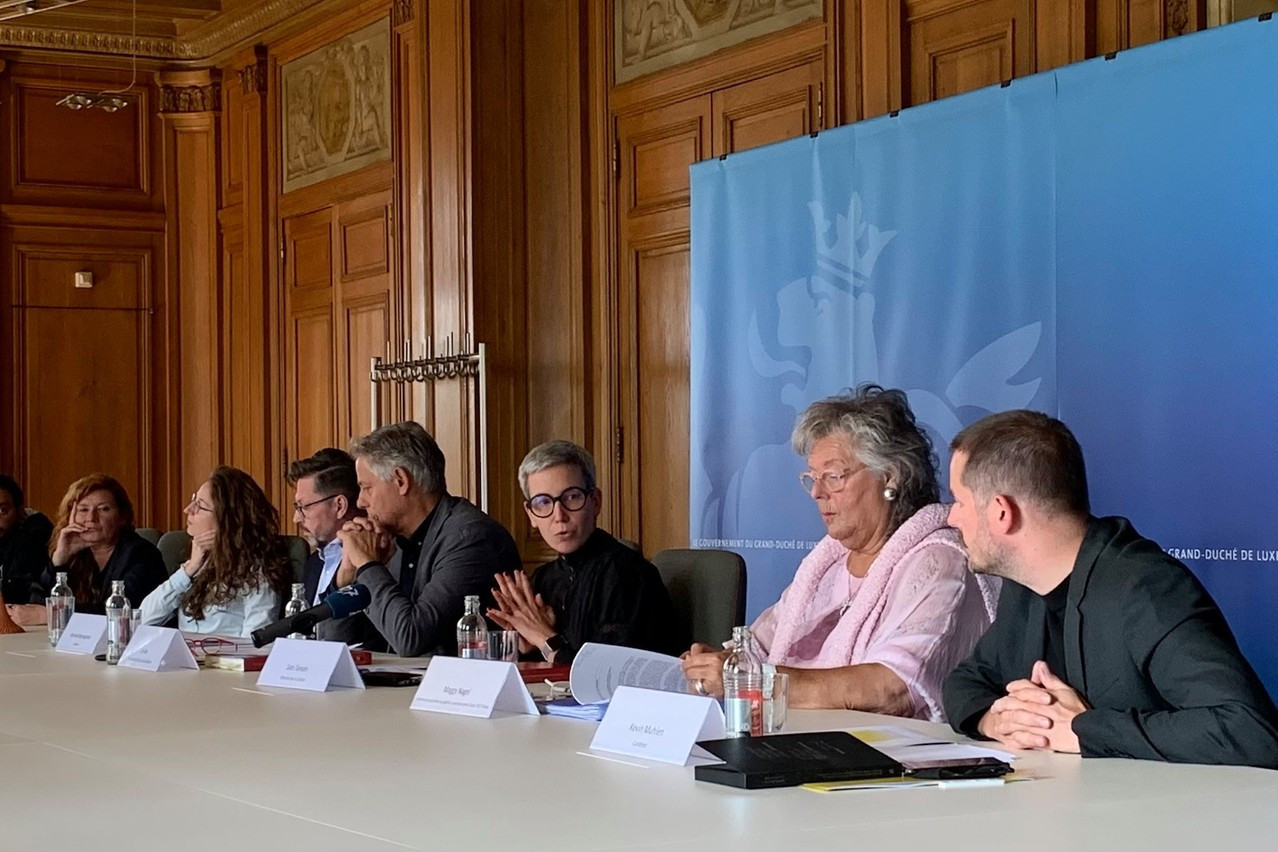Culture minister Sam Tanson (Déi Gréng) and Maggy Nagel, commissioner general of Luxembourg’s pavilion, on Tuesday afternoon unveiled the cultural programme under the motto “We want to remain what we become”, a play on the national motto “We want to remain what we are”.
A collective of artists will present their oeuvres between 15 and 31 January 2022 at the pavilion--six projects in a mix of disciplines.
The artists involved are Julie Conrad (design), Adolf El Assal (cinema), Guy Helminger (literature), Karolina Markiewicz and Pascal Piron (visual arts), Simone Mousset (dance), Patrick Muller (music) and Renelde Pierlot (theatre).
A collection of 42 poems by 21 Luxembourg authors--translated into English and Arabic--will be available for purchase, with readings organised at the pavilion including Arab and Luxembourg writers.
Inspired by Luxembourg’s Péckvillchen--bird-shaped pottery whistles traditionally sold on Easter Monday--an installation of spheres made from Nospelt clay will be on display. With pottery, an art form recognised across cultures, the installation also includes a sound element that interacts with visitors.
Performance art piece How To Host A Ghost aims to reflect on phantoms in today’s society--invisibility, silence, emptiness and absence, while installation Gestalten features three sculptures that narrate their history.
Spectrum Cinqfontaines is a video work between fact and fiction, telling the story of the Cinqfontaines Abbey in Luxembourg, from where Jews were deported during the Second World War, and putting this into the context of modern-day refugee crises.
And finally, Full Memory, is a short film about a Syrian refugee in Europe.
“Interpersonal and intercultural exchange is a catalyst for development both at individual and societal level,” Tanson said about the programme.
